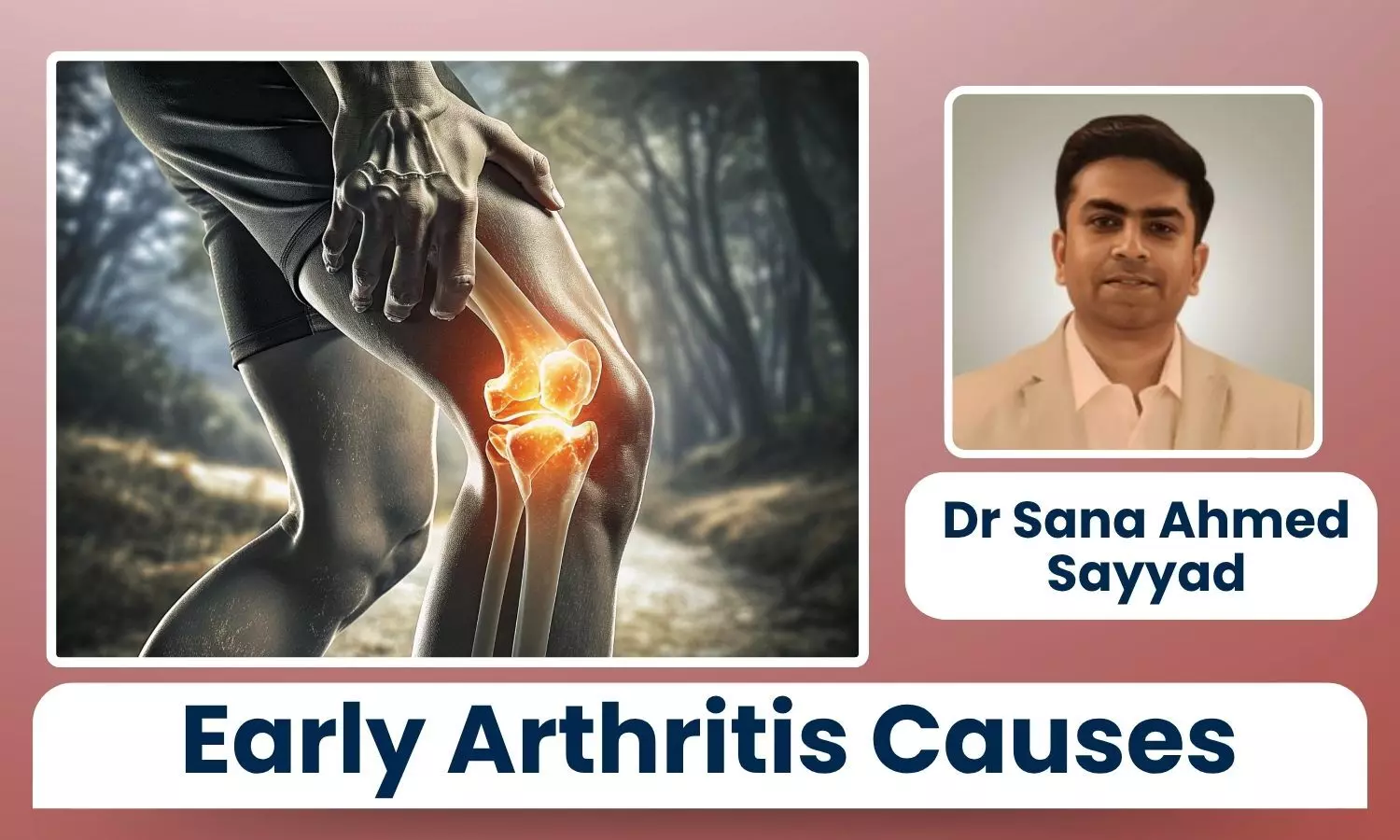Why Are Young Adults Facing Early-Onset Arthritis? Hidden Lifestyle Causes - Dr Sana Ahmed Sayyad

Arthritis has traditionally been considered a disease that occurs among older people. But now, an increasing number of individuals in their 20s and 30s are suffering from joint pain, stiffness, and even premature signs of degeneration.
Such a surge in early-onset arthritis is alarming because it indicates how contemporary lifestyles are silently undermining joint health long before the years of old age.
Early-onset arthritis is the onset of joint inflammation and degeneration at a younger age than forty. Although autoimmune diseases such as rheumatoid arthritis or lupus can occur early in life, the more unexpected problem is the rise in osteoarthritis.
This disease, once typical of old age, is increasingly being diagnosed in younger individuals. Genes may be an influence, but lifestyle factors are emerging as the more dominant force driving this phenomenon.
One of the biggest issues is an inactive lifestyle that is coupled with being overweight. Hours of sitting, little exercise, and too much time spent staring at screens make the muscles that are supposed to safeguard and stabilise the joints grow weaker.
Weak muscles cause more mechanical stress to land directly on the knees, hips, and spine. Small amounts of weight gain put additional stress, speeding up the degeneration of cartilage. These stresses, over time, build a platform for arthritis early in life.
Sports injuries are another issue that many people overlook. Young adults these days are very active in gyms, sports, and exercise. Nonetheless, injuries such as ligament strains, meniscus tears, and sprains of joint sprains are usually not healed effectively.
Many either return to function too early or fail to undergo adequate rehabilitation. This causes joints to become unstable, alters their motion, and results in future wear and tear that could have been avoided with appropriate care.
Contemporary working spaces are also contributing to the issue. Time spent leaning over laptops, suboptimal workspace design, and ubiquitous mobile phone use all contribute to posture issues.
The result is repetitive micro-strain on the spine, neck, and shoulders. While the strain itself might feel minimal initially, the repeated stress takes its toll and ultimately results in fatigue and premature joint degeneration.
Diet and nutrition also play an important role here. Low intake of essential nutrients like calcium, vitamin D, and omega-3 fatty acids weakens bones and cartilage.
Simultaneously, high-food diets consisting of processed foods, added sugar, and bad fats promote inflammation in the body. This weakness and inflammation combined catalyse joint damage at a faster rate, forming a cycle that is hard to break.
Stress, lack of sleep, and habits such as smoking pile on an additional layer of risk. Sleep deprivation and chronic stress lower the body's capacity to heal tissues well.
Smoking, including e-cigarettes, lowers the level of blood supply to the joints and delays the healing process. In combination, all these significantly raise the likelihood of developing arthritis at a much younger age.
Early signs should not be ignored. Long-term pain, stiffness after rest, swelling after light exercise, or cracking and grinding feelings in the joints should never be overlooked.
These are seemingly harmless symptoms that usually indicate the onset of joint degeneration. Not doing anything will only put off getting treated until later, when the issue gets worse.
The good news is that young adult arthritis can usually be prevented or delayed if caught early. Healthy weight, regular exercise such as swimming or walking, posture at work, a well-balanced diet, and sufficient rest all contribute a great deal toward safeguarding joint health.
Treating injuries early on and undergoing rehabilitation is also vital. Not smoking and stress control also contribute a great deal to long-term outcomes.
If pain or stiffness in the joints persists beyond a few weeks, the services of an orthopaedic specialist need to be sought. An early visit to the doctor can not only be relieving but also avert continued damage to the joints. With vigilance and prompt action, healthy joints and mobility well into advanced age can be ensured.
The rise of early-onset arthritis among young adults serves as a reminder that our joints cannot withstand years of neglect. Lifestyle choices made in our twenties and thirties strongly influence joint health in the decades that follow.
By taking preventive measures today, young people can safeguard their mobility and enjoy active, pain-free lives for years to come.
Disclaimer: The views expressed in this article are of the author and not of Health Dialogues. The Editorial/Content team of Health Dialogues has not contributed to the writing/editing/packaging of this article.


